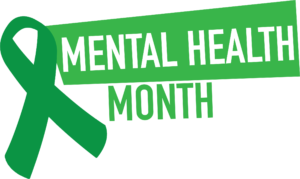Risk factors are personal or environmental characteristics that can increase the likelihood of someone dying by suicide.
Risk factors:
- Knowing someone who died by suicide
- Attempting suicide previously
- Abusing alcohol and drugs
- Experiencing mental disorders and chronic illnesses
- Having access to lethal means
However, it is important to mention that risk factors do not predict whether someone will die by suicide.
On the other hand, protective factors are personal or environmental characteristics that can protect someone from suicide.
Protective factors:
- Having access to effective mental health care
- Possessing coping and problem-solving skills
- Feeling connected to and supported by family, individuals, and community
- Having a purpose in life and high self-esteem
- Possessing cultural, personal, or religious beliefs that discourage suicide
Suicide prevention strives to increase the amount of protective factors an individual has while decreasing the amount of risk factors.
There are several steps parents can take to increase protective factors in their children’s lives, including the following:
- Plan regular mealtimes when the whole family can sit down together to eat
- Teach and model positive coping methods and problem-solving skills
- Limit screen time, especially on social media platforms
- Invite and initiate open conversation. Create an environment that helps children feel comfortable opening up
- Safely store or lock any firearms and medicine in the house
- Encourage positive connections to teams, organizations, religions, etc.
Is Eating Dinner Together Important?
Eating together as a family could seem like an unimportant task, but it is actually one of the top protective factors for children.
Benefits of Family Dinners:
- Higher self-esteem
- Increased resilience
- Lower rate of obesity
- Increased academic performance
- Lower risk of depression
- Lower risk of suicide ideation
- Increased feeling of safety
- Can contribute to family traditions (special birthday and holiday meals)
- Provide parents insight into children’s moods and emotional needs
- Provide a place to solve problems
- Enhance language development
- Improve family relationships
*Note – The information in this blog is for general educational purposes only. It does not constitute and should not substitute for individual professional advice, psychotherapy, or the provision of psychological services. This blog is produced by Hope4Utah, a nonprofit organization providing trainings, resources, and supports to prevent, intervene, and respond to suicides and to improve mental health.

This blog was written by Hope Squad. Hope Squad student members are trained to be aware of their peers and watch for warning signs. They learn to show empathy to their peers, listen without judgment, and reduce stigma regarding help-seeking and mental illness. Hope Squads are now in over 1,200 schools across 35 states and Canada. During the seventeen years since Timpview High School started a Hope Squad, the school has not lost a student to suicide. And as Hope Squad grows, we will continue to spread hope and save more lives. Learn more by visiting https://hopesquad.com/.




